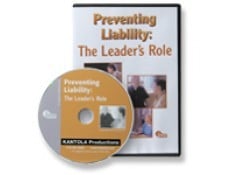
January 14, 2014
Can an employee sue their supervisor for a workplace accident?


January 14, 2014

One of an employee’s job duties was to operate a band molding machine that compressed and punched inserted plastic into the desired shape. Over time, hardened plastic would accumulate within the mechanism, requiring its removal by hand. Normally, removing the hardened plastic was a safe procedure because the machine would only operate if the worker stepped on a foot pedal. That morning, however, the machine suddenly started compressing from time to time without her touching the pedal.
The employee was worried and went to see her supervisor. The worker quickly explained the problem and expressed her concern about using the machine in that condition. “Maybe you could come over and take a look?” she suggested.
“Oh, quit whining, and just deal with it,” was the supervisor’s reply.
So the employee went back to work. Later that day while she was reaching in to remove some hardened plastic, the machine suddenly compressed. She lost almost all of her right hand in the accident.
In addition to collecting workers’ compensation benefits, the employee went to court to sue her supervisor, personally, for physical and emotional pain and suffering caused by her injury.
The supervisor asked the court to dismiss the case, claiming that under the state’s workers’ compensation law an employer is generally immune from lawsuits when an employee suffers injuries in a work-related accident. And that immunity extends to supervisors.
The employee argued that a supervisor loses immunity if he or she commits negligent acts “outside the scope of the employer’s responsibility to provide a safe workplace.” The employee said that the supervisor was clearly negligent when, having been informed of a workplace hazard by an employee, he ignored the problem and failed to take any corrective action.
A trial judge ruled that workers’ compensation was the employee’s only remedy for the job injury. She could not sue her supervisor.
The employee appealed her case to a higher court.
What the Court Said
The employee can sue her supervisor, ruled the Missouri Court of Appeals. The supervisor was acting “outside” his duties when, knowing the defective nature of the machine, he failed to inspect the machine, correct the hazard, or shut the machine down until it could be fixed. Compelling an employee to continue to use a machine the supervisor knew to be dangerous was an act of negligence that caused the supervisor to lose her immunity from liability.
What This Ruling Means
There’s always a temptation to let safety problems wait or think that an employee is overreacting. But don’t let anything ever get in the way of ensuring the safety of the employees. Emphasize to supervisors that they should never ignore an employee safety complaint. No matter how busy they are, they should take the time to check it out and if a problem is found, it should be reported to you.
This article retrieved from Ehssafetynews.wordpress.com


